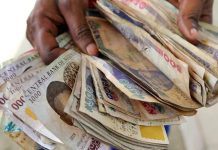Notwithstanding the Supreme Bank’s direction for an industry-wide sell off of foreign currency assets, Nigeria’s sovereign Eurobonds, or US dollar bonds, saw a surge in value on the global market.
The average return thus gave way slightly as the authority prepared to acquire external money to cover its budget shortfalls. In the face of pressure on currency values, the Central Bank of Nigeria (CBN) has advised banks to reduce their holdings of foreign assets. A few policy changes have been brought about via government reforms.
The goal of this has been to enhance the growth prospects and general economic performance of the largest economy in Africa, with a GDP estimated to be $500 billion.
Due to the large amount of holdings by large investors, dealers and market experts projected that yield on US dollar assets would rise sharply after the instruction.
However, in the international market for Nigeria’s sovereign US dollar bonds; prices increase due to demand. Buy sentiment was evident across all ends of the yield curve, leading to a decline in the average yield by 4 basis points to 9.78%, according to Cowry Asset Limited.
Lawmakers have launched a plan to probe banks that failed to meet the 24-hour direction on reducing net open positions for commercial banks in Nigeria.
Elsewhere, the US Federal Reserve held its ground on monetary policy, opting to keep interest rates unchanged, affirming its commitment to a tight stance.
Despite maintaining the status quo, the Fed signalled its intentions for continued tightening throughout 2024, indicating a proactive approach to managing inflation and economic stability.
Last month, Eurozone inflation decreased more than anticipated, dropping to 2.8% year-over-year. This decline from the previous month’s rate of 2.9% suggests a slight moderation in price pressures across the Eurozone.












